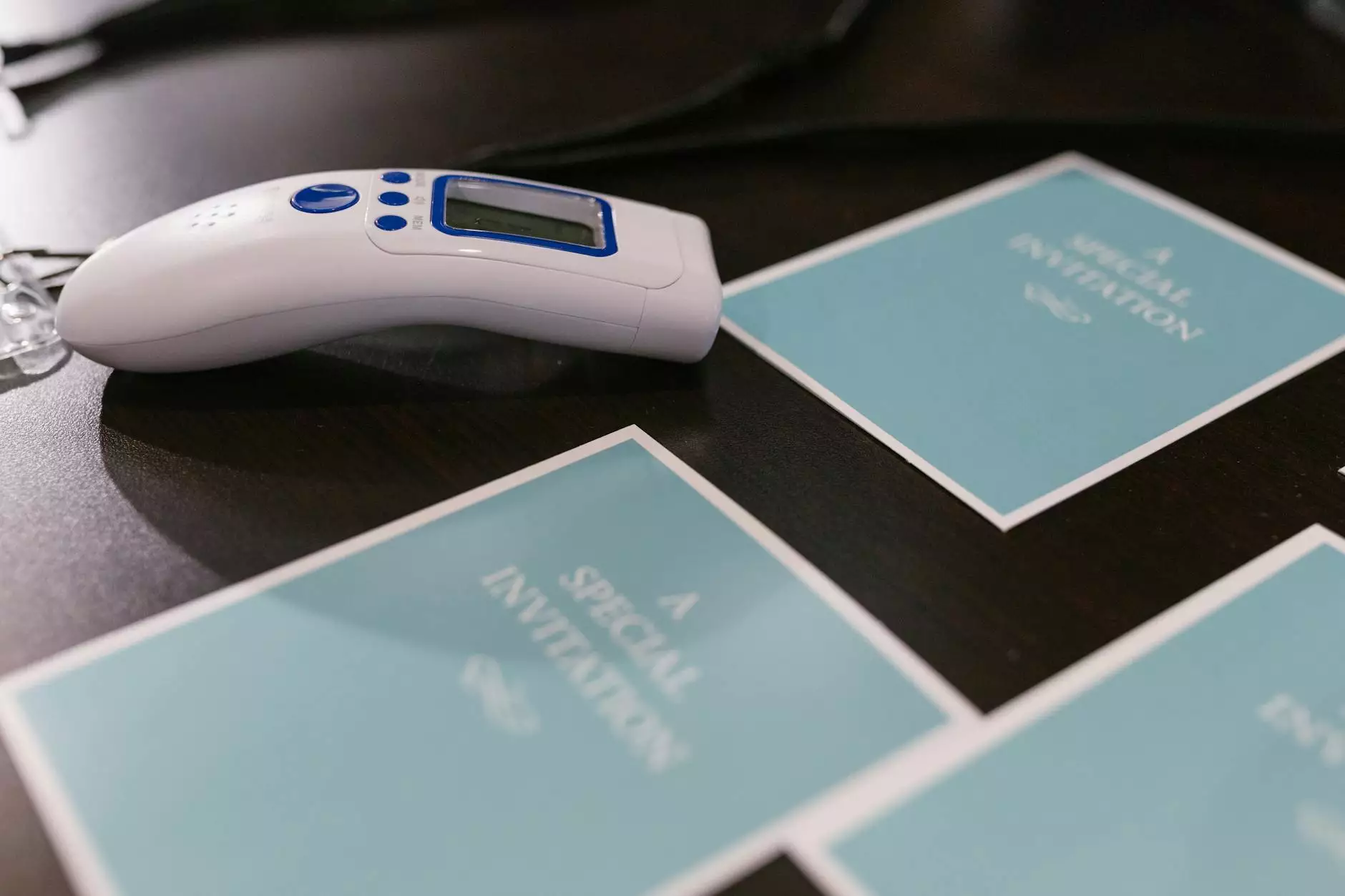The Vital Role of CRM Pharmaceutical Solutions in Driving Business Success

In today's fast-paced and ever-evolving business landscape, especially within the pharmaceutical sector, robust customer relationship management (CRM) systems have become indispensable. With the myriad of challenges that come with regulatory compliance, market competition, and consumer expectations, having a powerful CRM pharmaceutical platform can be the key differentiator for companies looking to thrive.
Understanding CRM in the Pharmaceutical Context
Customer Relationship Management (CRM) encompasses strategies and technologies that companies employ to manage interactions with potential and current customers. In the pharmaceutical sector, effective CRM systems are tailored to support sales representatives, manage physician relationships, and ensure compliance with industry regulations.
Why is CRM Essential for Pharmaceutical Companies?
The pharmaceutical industry is unique, facing challenges that range from strict regulatory standards to the complexities of patient care. Adopting a robust CRM pharmaceutical system leads to numerous advantages:
- Enhanced Customer Relationships: By leveraging CRM systems, companies can better understand their clients' needs, preferences, and behaviors, enabling personalized communication and improved satisfaction.
- Streamlined Communication: A centralized platform ensures that teams can easily share insights and updates, fostering cooperation among marketing, sales, and customer service.
- Compliance Management: With built-in regulatory compliance features, CRM solutions help organizations meet industry standards and avoid penalties.
- Data-Driven Decision Making: Advanced analytics within CRM systems provide detailed insights into market trends and customer interactions, aiding strategic planning.
Key Features of a Successful CRM Pharmaceutical System
To truly capitalize on the potential of CRM in the pharmaceutical industry, businesses should seek systems that offer a comprehensive suite of features tailored to their unique needs. Here’s what to look for:
1. Sales Force Automation
Automating routine sales processes can significantly increase the efficiency of sales representatives. Features should include:
- Lead creation and scoring
- Automated task reminders
- Performance tracking and reporting
2. Detailed Customer Profiles
Understanding each customer is crucial. Effective CRM systems should allow for the creation of detailed profiles capturing interaction history, preferences, and past meetings. This means:
- Tracking physician engagement and responses
- Recording competitor analysis relevant to the specific healthcare professional
- Customized communication plans based on individual preferences
3. Compliance and Regulatory Features
Given the stringent regulations in the pharmaceutical sector, CRM software should be equipped with features to ensure compliance with:
- Healthcare regulations such as HIPAA
- Patient privacy laws
- Documentation and reporting requirements
4. Marketing Automation
Integrating marketing automation within a CRM allows for targeted campaigns. Features include:
- Segmentation of customers based on demographics and behaviors
- A/B testing for promotional materials
- Automated follow-up communications following events or new product launches
The Benefits of Implementing CRM Solutions in Pharma
Implementing a well-chosen CRM system can introduce transformative improvements in pharmaceutical businesses. Here are some compelling benefits:
Improved Sales Performance
CRM tools streamline the sales process by optimizing the scheduling and managing customer interactions. This leads to higher close rates and increased revenue. Sales teams can prioritize leads based on data-backed criteria, focusing their efforts where they are most likely to yield results.
Better Collaboration Across Departments
With a centralized database, sales representatives, marketing teams, and customer service departments can improve collaboration, share insights, and work together towards common goals. This unified approach fosters an environment where customer feedback can instantly lead to actionable changes.
Enhanced Customer Experiences
Personalized experiences build trust and loyalty. By having access to detailed customer profiles, pharmaceutical companies can tailor interactions to match individual needs, which increases customer satisfaction and positions the company as a leader in customer care.
Efficient Marketing Campaigns
With the help of marketing automation features, pharmaceutical companies can design and implement targeted marketing campaigns based on solid data analysis. This allows for better allocation of marketing resources and increased campaign return on investment (ROI).
Choosing the Right CRM Pharmaceutical System
The selection of an optimal CRM pharmaceutical system requires careful consideration. Here are some vital points to keep in mind:
- Scalability: Choose a CRM that can grow with your business, adapting to changing requirements and user numbers.
- Integration: Ensure the CRM can integrate smoothly with existing tools and software systems used in the organization.
- User-Friendly Interface: A complex interface can hinder adoption. Opt for a system with intuitive navigation and minimal training requirements.
- Support and Training: Select vendors that offer comprehensive support and training options to help teams maximize the efficacy of the CRM software.
Case Studies of Successful CRM Implementation in Pharma
1. Global Pharmaceutical Company A
Global Pharmaceutical Company A implemented a CRM system that seamlessly integrated sales tracking with customer engagement metrics. As a result, their sales team increased their customer retention rates by over 30% within a year, demonstrating the power of a customer-centric approach.
2. Regional Pharma Company B
Regional Pharma Company B used CRM analytics to identify underperforming products in specific markets. By tailoring marketing strategies based on data insights, they boosted product sales by 50% across targeted regions, showcasing the effectiveness of informed decision-making.
Future Trends in CRM for Pharmaceuticals
As technology continues to advance, the future of CRM in the pharmaceutical sector will evolve in exciting ways. Here are some key trends to watch:
1. Artificial Intelligence and Machine Learning
The integration of AI will enhance CRM capabilities, providing predictive analytics, improving customer insights, and automating routine tasks. Pharmaceuticals can expect more sophisticated tools for understanding market dynamics and consumer behaviors.
2. Enhanced Mobile CRM Solutions
As sales teams are increasingly on the move, mobile CRM solutions will become crucial. These applications will allow sales reps to access crucial client information and update records in real time, enhancing response times and data integrity.
3. Greater Emphasis on Data Security
As data privacy concerns grow, pharmaceutical companies will focus on CRM solutions that prioritize security compliance. Future systems will need to incorporate advanced security features to protect sensitive health data while ensuring compliant data sharing practices.
Conclusion
In the pharmaceutical industry, where the stakes are high and competition is fierce, adopting a top-tier CRM pharmaceutical system can set companies apart. By understanding the unique nuances of pharmaceutical sales, leveraging data analytics, improving compliance, and personalizing customer experiences, companies can foster stronger relationships and drive business success. As you consider the implementation or upgrade of your CRM solution, keep in mind the specific needs of your organization, aiming for a system that not only meets those needs today but also scales with your business into the future.
For more insights and solutions tailored to your pharmaceutical business needs, explore the innovations available at veribase.com.









